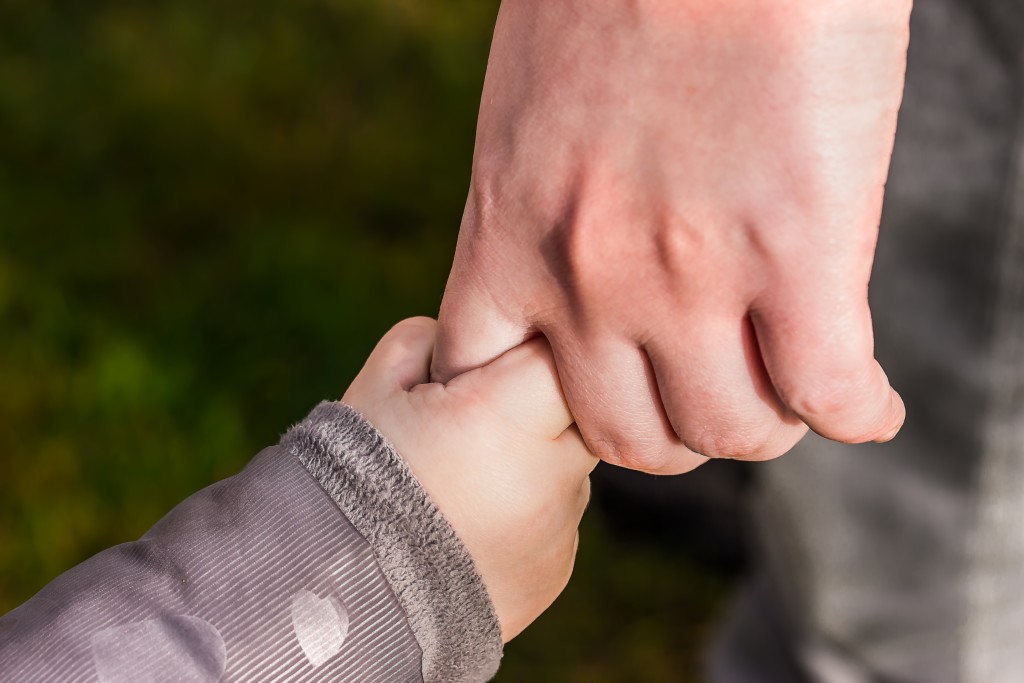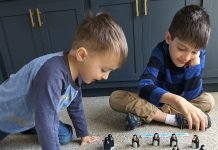 As I was wrapping up this blog submission, the news flashed across my screen: another school shooting. Admittedly I was taken aback, again. I was shocked, heartbroken, furious, and instantly devastated for the families involved. No matter how many times the news shares about this ugly reality in our country, I am gut-wrenched thinking about the pain rippling through so many families. We will debate about the ways to fix it (and we should), we will send our thoughts and our prayers (and we should), and we will hopefully finally start finding solutions to stop it in the future (and we most definitely should).
As I was wrapping up this blog submission, the news flashed across my screen: another school shooting. Admittedly I was taken aback, again. I was shocked, heartbroken, furious, and instantly devastated for the families involved. No matter how many times the news shares about this ugly reality in our country, I am gut-wrenched thinking about the pain rippling through so many families. We will debate about the ways to fix it (and we should), we will send our thoughts and our prayers (and we should), and we will hopefully finally start finding solutions to stop it in the future (and we most definitely should).
But when the dust settles, when the news cycle turns over, when we all inevitably turn back to our own lives there will still be grief. There will be families trying to pick up the pieces and trying to figure out what life will look like moving forward without their beloved family member.
This is the truth about grief: it continues when the world moves on. I have been helping families through their grief processes in one way or another for the last 15 years. After losing my sister tragically and violently at the age of 18, when I was 19 and our youngest sister was 9, I became especially interested in how to help parents and caregivers help their children when they are grieving themselves. I’ve compiled a list of helpful tips about how to talk to children about death in my time as a grief group facilitator, a therapist, and a researcher.
Before you delve into, or simply scan, the advice in this blog, I must confess that this is not a comprehensive formula for taking on the difficult task of discussing death with your children (or children in your care). Loss, grief, living after the death of someone we love, or after the knowledge of tragedies beyond our control, these things are messy. Circumstances and situations are unique – every loss has its own reverberating sorrow. Many things can impact how grief is experienced for a child and an adult alike, so I ask that this be read more as a set of tools based on my experiences and not rules for how it has to go.
Don’t use euphemisms. As adults, we often say someone has “passed” or is “lost” or we tell kids they “went to sleep/away.” We know that these things mean death. But this can be confusing and often fear-inducing for children. When talking to kids it is best to be as concrete as possible. A person died. Died means they are no longer living or able to be with us and do things with us. The younger the child the more concrete the answer. This will not scare them, but rather gives them words to describe what happened.
Do use specifics. This goes along with the idea of using concrete language. Kids like details and if you don’t give them enough to understand they will seek out the information. I very clearly remember working with a five-year-old child that described clearly the way his Grandfather’s pacemaker stopped working. The clarity with which he described what happened helped it be less scary.
Do let them know that they are safe but don’t make promises. One of the biggest fears that parents often share is that their child might worry that something will happen to them. And this is a true fear, kids will worry. By giving specifics and using concrete language we can let a child know how we are making sure they are safe and healthy. We can help them differentiate their situation from the person that died. However, it is best not to use “I promise,” because unfortunately we cannot guarantee all things. A child that experiences a tragedy similar to the same loss after a promise that it would not happen was made often struggles more with coping.
Don’t hide your tears. Another thing that many adults are guilty of is trying to hide their own emotions related to the grief. I always suggest not to do this for two reasons. First, it is healthy for children to see adults have and manage emotions. Second, the child in your care senses, sees, feels, experiences, etc that emotion you are trying to hide. If you cannot show them and tell them why you are crying (for example), then they will try to fill in the gap by making up a reason. Often, children of all ages, believe that they are somehow the cause of the tears or that they have failed to fix it. We can begin to assure them that it isn’t their job to fix it or that they are not the cause of it when we use our emotional moments as teaching moments.
Do ask them what they think. Death is one of the things in life that is often surrounded by uncertainty and confusion. By asking a child what they think happened or what they think about life and death, we give them an opportunity to open up, to ask questions, and to process. By asking them what they think we also acknowledge that they too were impacted by the death. Too often we mistake quiet, inattention, or good behavior as a sign that a child is not grieving. I like to ask a child what they think before I share what I think or I believe. Then when they return the question, because they always do, I make sure to share what I know, what I think, and what I hope is true, with those words.
Don’t be afraid to say “I don’t know.” To follow up that last point, it is OK to say I don’t know. It is OK to admit to a child that you don’t have the answer or detail that they are looking for. Children feel safe when they sense honesty. I don’t know is a better response than making something up.
Don’t expect everything to be smooth and DO seek support. Loss is tough. Going through a loss and caregiving is extremely tough. Caring for a child that went through a major loss is extremely tough. There will be days you feel like you nailed and days you feel like you failed. That’s OK. If I’ve learned anything about working in grief, it’s that support is out there. There is a network of people who have sadly been through something similar, there are family and friends who don’t know what to do or say but want to, and there are professionals who work specifically with coping through grief. Please don’t be afraid to ask for a little help because we are in this together.

















Beautifully said and so helpful for all adults caring for children experiencing loss… it is so messy and scary… truth transcends the fear. Thank you Tiffany,